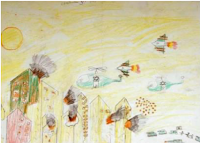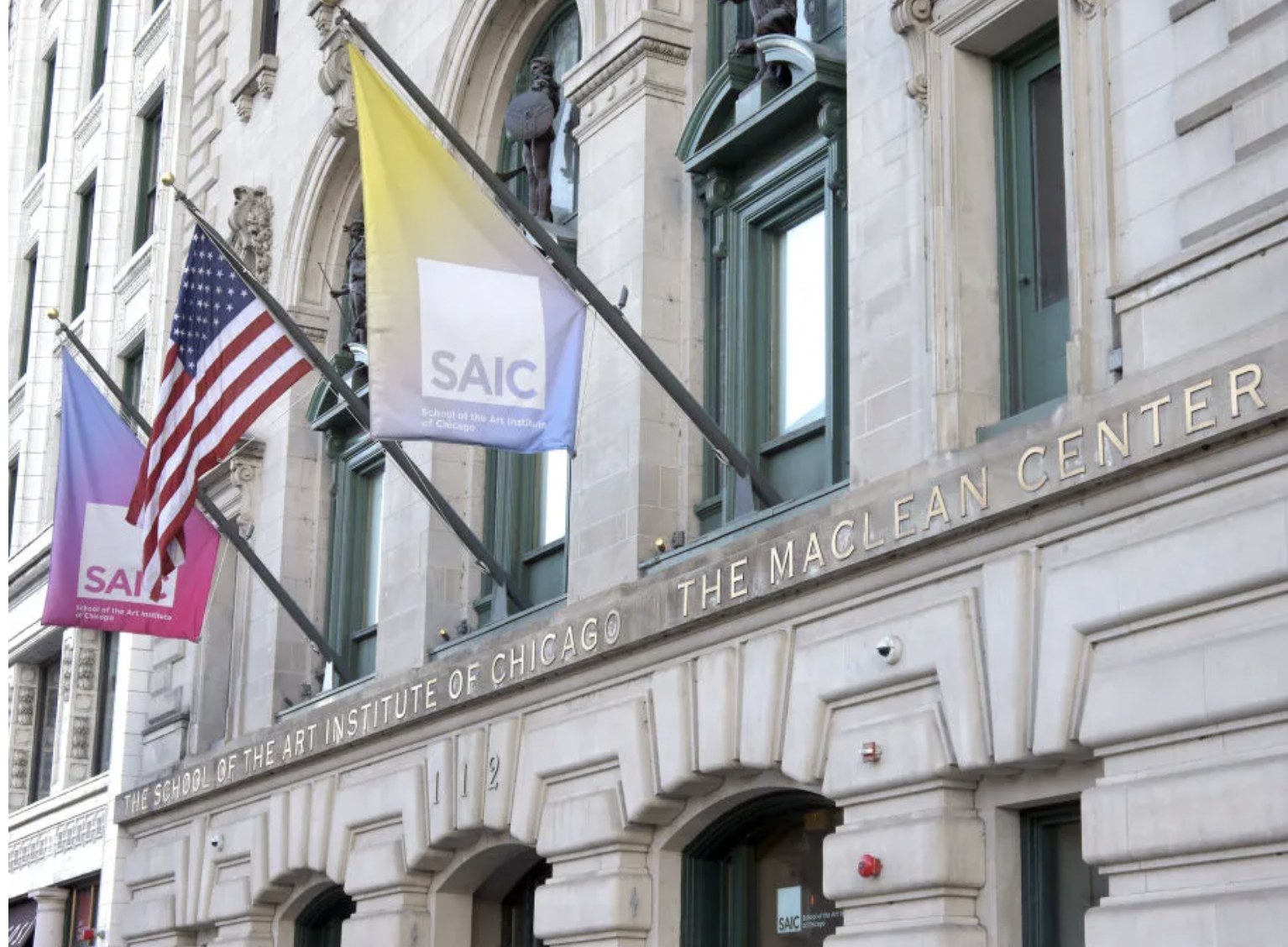Prior to her admission into the SIAC's prestigious Art Therapy master's program, Shiran Canel first experienced the school's discriminatory practices during her interview process, and subsequent denial from the school's masters program. After hearing of her rejection from the program, Canel challenged SIAC, claiming her interview and application process was conducted in a discriminatory manner, on the basis of her Jewish beliefs. Following Canel's complaint to SIAC, the school quietly investigated her application process, and subsequently allowed her admittance into the program.
Once a student at SIAC, the anti-Jewish and Israeli sentiment that plagued her admissions process became further prevalent within the classroom. Following the October 7, 2023 Hamas attack on Israel, anti-Jewish hostility amongst students and professors within SIAC rose, and Canel felt outcasted for both her cultural and religious values. In the hallways and online, slurs and hatred were abound. Within the classroom, Canel also faced discrimination, particularly from Professor Sandie Yi, who altered the final project to endorse anti-Semitism. During the final assignment for Yi's "Material and Media in Art Therapy" course, students were asked to evaluate a "collection of drawings all of which pertained exclusively to the Israeli military and Israeli soldiers engaged in seemingly senseless violence against Gazan families and children."
In response to Yi's final assignment, Canel filed a temporary restraining order and subsequently filed suit against SIAC on the grounds of violations under Title VI of the Civil Rights Act of 1964 and the Illinois Human Rights Act, which specifically condemns anti-sematic hate. Following Canal's actions, Yi subsequently modified the final assignment, yet changed the grading standards to incorporate a peer review element. Since Canal's classmates were also known to discriminate against the Jewish community, Yi's decision to modify the grading parameters severely disadvantaged Canal.
Thus, in considering the facts, does the inclusion of anti-Islamic art within the SIAC's curriculum violate Title VI of the Civil Rights Act of 1964 and the Illinois Human Rights Act?
Within the context of Canal's lawsuit, it is essential to unpack the protections allotted under Title VI of the Civil Rights Act of 1964. According to this document, the "discrimination on the basis of race, color, or national origin in any program or activity that receives federal funding or financial assistance" is strictly prohibited. Here it is important to note that Canal is duly protected as a student at SIAC under this act for both her religious beliefs and cultural background. While there are several cases regarding anti-semitism in court which are currently awaiting rulings, Owen & United States v. L'Anse Area Schools serves loosely as precedent. The background on the Owen case follows that both students and staff within Michigan's L'Anse area schools discriminated against Mr. Owen on the grounds of his Jewish religious beliefs. After making an appearance before the court, and subsequently attending mediation, Mr. Owen was awarded $265,000 in damages for the discriminatory hatred he experienced. The Owen case establishes that there is no tolerance for anti-Semitism within academia.
With specific regard to the state of Illinois, for which SIAC is located and hence subject to state law, the Illinois Human Rights Act exists to further protect individuals from discriminatory practices. This act ensures "Freedom from Unlawful Discrimination. To secure for all individuals within Illinois the freedom from discrimination based on race, color religion, sex, national origin, ancestry, age... in connection with employment, real estate, transactions, access to financial credit, and the availability of public accommodations, including in elementary, secondary and higher education".
In my opinion, Shiran Canal has been undoubtedly discriminated against on behalf of her religious beliefs and cultural background. One seeks to attend higher education institutions to better themself, and the blatant discriminatory acts which Canal experienced evidently served as a hinderance within her educational process. Although SIAC claims that they "strongly condemn[] antisemitism and any discrimination based on religion, nationality or any other aspect of a person's identity", the institution's actions prove the contrary. While this case has yet to be heard, I believe that the implications would be devastating, should the courts rule in favor of SIAC. Canal has the benefit of protections under both Title VI of the Civil Rights Act of 1964 and the Illinois Human Rights Act. Conversely, SIAC will struggle to find legislation which supports the hatred they have previously endorsed.
Sources:
https://www.artnews.com/art-news/news/school-of-the-art-institute-of-chicago-lawsuit-antisemitism-allegations-1234692121/
https://www.ilga.gov/legislation/ilcs/ilcs5.asp?ActID=2266
https://www.justice.gov/crt/case-summaries
https://admin.muchlaw.com/wp-content/uploads/2023/12/Canel-12.22.23-Complaint.pdf
https://www.campusreform.org/article/jewish-israeli-student-sues-chicago-art-school-for-anti-semitism/24692
https://religionclause.blogspot.com/2024/01/art-institute-school-sued-for.html



Kim -
ReplyDeleteI agree with your stance that Shiran Canal is, ultimately, being religiously discriminated against at SIAC. You made several points that helped us understand this long and extensive series of discrimination that Canal has been facing. In my opinion, I believe the Court will rule in favor of Canal. She has prominent evidence that clearly backs up her suit, and with the consideration of the Illinois Human Rights Act, that you mentioned, I feel that Canal will receive her necessary recognition.
Great post! This was a super interesting read given its touching on some of the most pressing issues today.
ReplyDeleteI completely agree with your holding. I think that stating that Canal has been discriminated against during her time at SIAC is valid due to the protections she gets under Title VI and the Illinois Human Rights act. This double protection strengthens her argument, as well as stating that rules of the assignment were tweaked to directly disadvantage Canal even after reporting of anti-semetism.
I would agree with your statement that it’d be deeply upsetting to see the court rule against Canal in this case. Conflicting opinion does not make blatant discrimination okay.
Kim, I really enjoyed reading your post. I agree that Shiran Canel has faced numerous cases of discrimination both prior to her enrollment at SIAC and throughout her time there. The end of your post where you argued that if the courts were to rule in favor of SIAC, the implications would be devastating, led me to think about just what some of these implications could be. Should the courts rule that SIAC’s actions do not violate Title VI of the Civil Rights Act of 1964 and the Illinois Human Rights Act, this could produce a slippery slope and open the floodgates to even further discrimination within academia towards certain religious and cultural groups. Additionally, it seems to appear that Jewish students make up the minority at SIAC, and if this is the case, protecting their rights from being encroached on by those who hold the majority viewpoints at the school is imperative.
ReplyDeleteI agree with you too Kim. This was clearly discriminatory on the part of both the school itself, as well as the professors involved. Making art assignments about strictly the Israel Palestine issue, and coupling that with anti jewish sentiment, is prima facie insane and has no place in a school setting. That professors post on social media was also crazy, to say that "all Israelis" are evil and will rot in hell, is first of all not her job to express as a professor because frankly nobody asked, but second it can't be tolerated by an institution that want's to salvage any and all credibility.
ReplyDelete